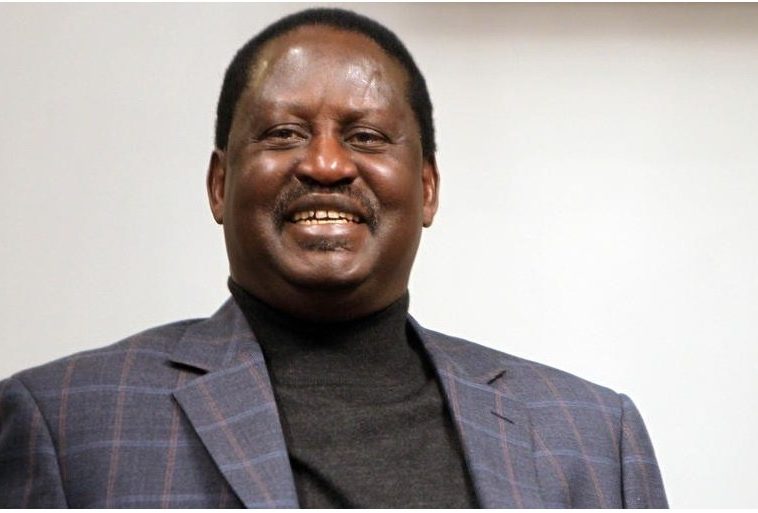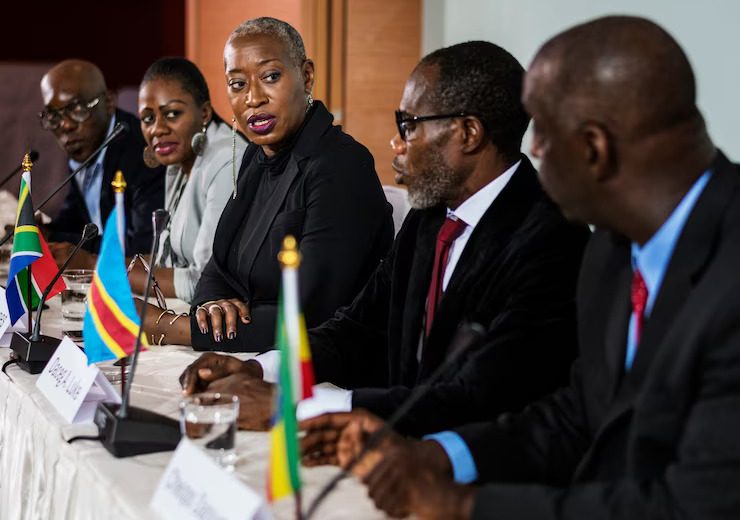Nigeria has a new man at the helm of affairs at the Ministry of Works by the name of Dave Umahi, a civil engineer and politician from Ebonyi State. For the past few months since he assumed duty, he has been up and doing and has gotten his name on the lips of contractors, engineers, civil servants, and Nigerians in general.
One of the things going for him as it is now is his background in engineering, which at least puts him at an edge over previous holders of the post of minister of works. But Umahi didn’t drop from the heavens; he has always been around in the political terrain of Ebonyi State, where he has served in different capacities and shown exemplary leadership.
He came onto the political scene in 2007 when he was appointed as the acting chairman of the People’s Democratic Party, PDP, Ebonyi State branch. He became the party’s state chairman from 2009 to 2011.
In 2011, riding on the ticket of Martin Elechi as governor, Umahi was elected as the deputy governor of Ebonyi State, after which he won his party’s primary election to contest for governor in 2015.
By April 2015, Umahi had won the gubernatorial election, but the results of the election were contested by the opposition parties, who alleged some irregularities. However, it didn’t take Umahi so long to be confirmed as the legitimate governor of the state because, six months later, in October, the election tribunal declared him the rightful winner.
Among his governor colleagues in the southeast, Umahi was elected Chairman of the South-East Governors Forum in 2017 based on a rotational agreement that has seen Anambra and Abia take their turns.
Umahi in 2019 again rode on his popularity in the state to get re-elected as the governor, still under the umbrella of the PDP, in an election where he won all 13 local governments in the state to poll 393,343 votes, as against 81,703 votes by his closest rival, the All Progressives Congress (APC, candidate, Sonny Ogbuoji.
After several speculations about his political romance with the opposition party, Umahi defected to the ruling party, the APC, in November 2020, along with his cabinet members. According to him, “my defection to the APC was in obedience to God’s will, respect for President Muhammadu Buhari, an honour to dignitaries present, as well as obedience to the wishes of the Ebonyi people.”
In a dramatic turn of events, by March 2022, there was a court ruling by the Federal High Court in Abuja that sacked Governor Umahi, his deputy Eric Kelechi Igwe, and 15 others from their positions for joining the All Progressives Congress while still in office; however, by October of the same year, the court of appeals also in Abuja overturned the judgement that sacked Umahi as governor of Ebonyi State.
Like Oliver Twist, who wanted more, while his second tenure as governor was winding up in Ebonyi State, Dave Umahi, in January 2022, announced his intention to contest for the number one office in the country, the President of Nigeria. This saw him contest the APC presidential primaries, where he came in a distant sixth position in an election where the current President, Bola Tinubu, emerged as the winner.
Following his loss in the presidential primary, he participated in the primaries for the candidature of the Ebonyi South senatorial district, which he won, thereby making him the flag bearer for the APC in the 2023 senatorial election.
Not only did he win the election to represent his people at the 10th Senate of the Federal Republic of Nigeria, but he also took up the job with a sense of commitment, which earned him the nomination of Deputy Leader of the Senate even as a first-time senator.
Just a little over two months into his new role at the Senate, in August, Dave Umahi was nominated as minister of works by President Bola Tinubu.
Achievements as governor of Ebonyi
As governor of Ebonyi State, Umahi would go down in history as one of the leaders who changed the face and status of the state.
In terms of infrastructure, he embarked on some massive infrastructural developments across the states where he engaged new technology in construction, with particular reference to roads, where he ensured they were built with concrete at 8 inches.
He ensured that all the roads linking the 13 local governments of the state were reconstructed, while there was also reconstruction of other major infrastructure within the state, like the international market, which is one of the largest markets in Africa, general hospitals, and notably the construction of the ultra-modern King David University of Medical Sciences, Uburu, which has since been taken over by the federal government.
With his emphasis on enhancing the looks of parks, markets, streets, pedestrian crossings, flyovers, street lights, and water fountains, the state was transformed into one of the fastest-growing cities in Nigeria.
In the education sector, he took the state from its hitherto low level to a zenith through the provision of needed infrastructure as well as schemes and policies that supported educational development.
Economically, he was able to boost the economy of the state, which is known to depend largely on federal allocation, by redirecting efforts to internally generated revenue through the blocking of leakages, improving its agricultural sector, and harnessing the state’s solid mineral resources.
For instance, in the agric sector, he launched schemes like the “one man, one hectare scheme”, and youth agro-empowerment schemes, which ensured that agricultural activities were revived in the state.
Overall, Umahi promoted human development during his tenure as governor by making sure all other sectors were in good shape and functioning well for the benefit of the people and their wellbeing.
Strides as Minister of Works
Dave Umahi was one of the ministers who hit the ground running on the assumption of office in August, as he has traversed almost all the major federal roads across the country to assess their status for appropriate attention.
He has spelled out several terms and conditions for construction engineers as to future handling of works for the government, such as adopting concrete technology for road construction, while also announcing reviews of certain road contracts, like the federal roads in Ogun State, for effective monitoring.
Under his watch, the ministry has been able to pay N4tn of the N14tn inherited debt owed to contractors constructing various road projects nationwide.
In the course of his few months in office, he has done some remarkable paperwork to uplift infrastructure in the country. Among them is the Memorandum of Understanding signed with China Harbour in China for the design and construction of the 7th Axial Road in Lekki, Lagos.
If there is one thing Nigerians expect from the minister of works, it is the complete ongoing road projects across the country, to which Umahi has stated that there will be no new road projects for now as he will focus on completing the 2,604 road projects spanning 18,000 kilometres inherited from the Muhammadu Buhari administration.
As expectations remain high from the minister of works, it is expected that he will once again bring his Midas touch to bear on Nigerian roads, such that his blueprints will never be forgotten in the history of the nation.


